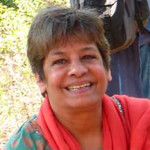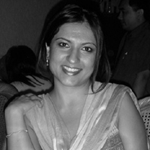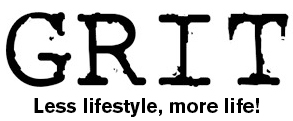
Editor
Following your positive feedback to last month’s topic on Sewa (the act of selfless service), we hope that you enjoy reading this month’s contributions which include thought-provoking views on the true meaning of ‘sewa’, why some have chosen to do charitable work and the impact that this has had on their own and other people’s lives.
Next month we will be discussing important health issues. Is there is a health-related subject that you feel more people should be aware of? Can you help raise awareness of the impact of diabetes, cancer, stroke or depression? Whether you are you a healthcare professional, or you have you personal experience of living with a medical condition, we would love to hear from you. Please send your Health Awareness article (400-700 words) to grit@womenempowered.co.uk before 20th October, 2015.
We look forward to hearing from you.

‘Sakhee Sewa’ is an ordinary group of eight friends (sakhees) who are passionate about helping others (Sewa). We work full-time in our various professions but have decided to dedicate two weeks of our lives to Sewa every two years where we support various charities both in the UK and abroad.
Our aim is to learn about the circumstances of underprivileged children and women and try to improve their quality of life by sharing our knowledge of health, hygiene, education and empowerment, in a fun and interactive way.
Our first two Sewa trips were to the slums of Gujarat. We all speak Gujarati fluently so this gave us the confidence to begin our Sewa work here. Four of us were able to make our third Sewa trip in March 2015. This year we went to an Ashram for underprivileged children in Bangalore where our host was Babubhai. The Ashram is home to 125 children aged from 6 to 16 years old. 75% of the children are girls and most have either been abandoned, orphaned or are from dysfunctional families.
Laxmi and Mina used their yoga and pilates skills to teach stretching and strengthening exercises with the children. They also taught them the importance of education, active listening and first aid. Sunita took on a big challenge, to teach the delicate and ‘taboo’ subjects such as puberty, menstruation, ‘safe and unsafe touch ‘and hygiene to the children, as well as the teachers.
I had done extensive research into environmentally-friendly sanitary pads, and taught the girls how to cut, sew and use sanitary napkins. We also taught them how to wash hands effectively, brush teeth correctly and the general discipline of cleanliness. All of our sessions were a great success and we hope that these basic hygiene lessons will make a big difference to their lives. In addition we also played memory games involving cards, names and pictures. The children laughed so much and it was wonderful to witness the joy that they experienced from our love and affection.
We also visited tribal villages in the foothills of Jahawadi Hills in Vellore where our host was Emma who has dedicated her life to Sewa. She took us to see projects she is involved in through the Sebastian Hunter Memorial Trust in tribal schools and villages where they reach out to underprivileged children.
In the area many men have been imprisoned due to making illegal alcohol or for chopping sandalwood, leaving women to fend for their families. To help these women Emma’s team have created cottage industries such as soap making and poultry farming. With the funds donated by our well-wishers in the UK we were able to support a sewing machine project and had the pleasure of inaugurating ten foot-pedalled machines which will help provide a livelihood for the women in Vellore.
These women have a very hard life; some even eat poisonous berries from the forest to end their lives. In these villages, girls go to the betrothed home, at puberty, and live with their partner for 6 months. If she becomes pregnant she marries him; if not, she is sent back home. We met a young 18 year old woman with a 4 year old daughter and another woman of 24 years with 5 children.
Dirty drinking water is collected from the spring ponds which animals also use, increasing the spread of disease. This saddened us tremendously and as a result we are funding pipes and pumps to get clean water from the spring pond to a central location.
Seb projects have also built five schools around Jahawadi hills. We were shocked to learn that young children were taken away at night for child labour and we felt that schooling was the best method of supporting these villages.
Sakhees feel fortunate to have met some incredibly hard working and inspirational people like Babubhai and Emma, who work tirelessly to overcome obstacles to improve other people’s lives. We were humbled and privileged to be a part of this Sewa experience.

One Summer holiday when I was 17 I made friends with a little girl, called Chandni who lived in a Gujarat slum. She was only 9 and had pretty little face with mature features and kohl smeared across her eyes. Her clothes were tatty but clean and hair was parted in the middle with two little bunches. I asked if I could meet her family. She was overjoyed.
The next morning she held my hand and as soon as I entered the slum, rushed me to her family home. I was given the warmest welcome. A wonderful meal had been laid out for me of roti, curry and daal – and of course a glass of lassi. I sat on the floor in a small room which was probably not even half the size of my bedroom at home. This was their family living room, bedroom and kitchen, all in one.
As I was about to dig in, I wondered why there was only one plate and no one else was eating. They said they had already eaten and without questioning further, I ate. I still remember the sweetness of the roti as I recall these events. I remember missing my Mum terribly as I had been away from home and how Chandni’s mum had served me with the same love that I feel when my Mum feeds me.
Since that Summer I have had countless encounters and shared wonderful friendships with people who are less privileged than me (or at least this is how the world defines it). Yet why does this particular experience stay so close to my heart? The answer is simple. That evening I learned about Chandni’s family. I found out that the family had eaten little or nothing that day because they had given me their only vegetables. This was the first time I experienced such generosity and kindness with no conditions attached.
As I look back now, I feel joy that I was able to receive such a gift, but also disappointment in myself too, as I have not yet reached a stage in my life where I could part with something so important in the way that Chandni’s family did so freely. Chandni’s family had nothing and gave me everything, not begrudgingly, but with all their heart.
My journey began with this humble beginning. Today whether we call it charity, philanthropy or social impact – I focus less on how much I give, what I give or how intelligently I give (even though these are important). Instead, I question the intent behind the action. I feel that if my intent comes from anything but the spirit of serving my fellow human beings, then that action of mine has failed.
Service starts at home, with our families and communities. Service doesn’t start when we are ‘older” or have made our money. It doesn’t require thousands of pounds. Of course, if money comes our way, we can always use it as a tool to further the way we reach out to others. However, the most wonderful givers I have met in my life have not necessarily given the most money but have given themselves. And this is the message I want to carry through my life. Service or Sewa is to me the celebration of those like Chandni and her family. So this is dedicated to those people who tirelessly give their time, their skills and knowledge to a cause that serves something greater than them self.

We are all inspired in some shape or form to give back to society every day. However, it is up to us how long that thought stays in our minds and whether we actually act on it.
I was fortunate to have a very privileged childhood growing up in India and attended one of the best schools in my city. The school fees were high but, as a child, I was oblivious to the fact that the privilege I received was simply because I had been born into a wealthy family. Every new school year, my favourite trip would be to buy a brand new complete uniform; new hair clips, shoes, socks and even a new pencil case with the latest Disney characters; anything I wanted. These were beautiful, innocent days with no responsibilities; the only pressure I had was to get good exam results.
During these early years, I did not understand why some of my fellow classmates never had new, well-ironed uniforms, messy hair and fading, yellow socks at the beginning of the school term. Occasionally, on a really hot summer day, I would spot one of my friends waiting to catch a public bus, and offer her a lift in my air-conditioned car to school. I did not realise then what a treat this was for her. When my mother sent me a hot lunch with my nanny every day to school, sometimes I would share my lunch with my friend. She always had just the same, simple basic cucumber sandwich which she bought in a dated, orange and white tiffin box every day. I did not realise, at the time, how happy I made my dear friend.
It was only much later in my senior school years that it dawned on me that every child did not have the privilege of enjoying regular holidays in India and abroad like me and I gradually began to realise the ‘lifestyle’ disparities between me and my friends. I felt ashamed that I had not realised that some of my dearest friends, whom I interacted with every day, had to work twice as hard as me to get the same grades. They would wake early to help prepare the family breakfast and their own lunch, and then travel great distances alone to and from school, often braving the strong sun and sharp showers. They would reach home hours later than me, with little energy left to finish homework, and then also have to help with evening household chores too.
Today I wish I could turn back the clock. At the time I could have easily offered to pick my friend on the way to school every day. I wish I had asked my mother to send extra hot food to school so my friend did not have to survive on the same small, meagre lunch. I could have easily done these simple things, but I just let things be. I had the opportunity to share and give but, I did not, and this always stayed in my heart.
So, many years later, now living and settled in London, when I was approached to help with The Akshaya Patra Foundation I instantly said yes. I felt as though this was my opportunity to make a small difference. The Foundation provides school lunches to the most under- privileged children in India. We reach out to 1.4 million children every day, and are the largest meal provider in the world. This is not just about tackling hunger but also about encouraging children to come into school to get an education.
For me, my work with the Foundation has been like reconnecting to own school days as well as a chance to be able to give a better life and future to so many children. Many of us may have lived a similar privileged lifestyle to me. We may have had an opportunity in our past to give back to society which we did not avail. However, it is never too late and I hope you too can think of ways to help make a difference now. We may not be able to turn back the clock to our past, but we can at least help towards a better future.
For more information please visit http://www.foodforeducation.org.uk/

The Oxford definition of philanthropy states: ‘The desire to promote the welfare of others, expressed especially by the generous donation of money to good causes’. I have a different interpretation and believe philanthropy should never be only about donating money.
Financial donations unarguably have significant impact: in reducing poverty (by providing free meals), imparting education (by providing school books, fees) and catering to a whole host of other money-related issues. However, volunteering one’s time (selfless service or ‘sewa’) and helping a stranger are actions whose impact should not be under-estimated either. Such activities in fact should be encouraged and placed highly on the ‘charitable behaviour’ quotient emphasising our civic and compassionate sense of duty to each other.
According to the World Giving Index that looks at charitable giving across 135 countries, charitable ‘behaviour’ is based on three actions: donating money, volunteering time and helping a stranger. Statistically, donating money was the only behaviour that declined in participation in 2014 with the age group 15-29 showing the largest decline. However, on the contrary, volunteering time has increased across all age groups. In 2013, 226m more people helped a stranger in a month than in 2012, resulting in a total of 2.3 billion people worldwide. The 30-49 year old age group are most likely to help a stranger.1
So, with donations in decline, is there ‘charity fatigue’ amongst us? Well, if charitable behaviour is defined purely in terms of money, then possibly yes. Of course wealthy individuals such as Bill Gates, Azim Premji and others continue to set the bar high making a fundamental difference to our global community with their charitable donations. However although average Joe Blogg may not have the luxury of that kind of money, actions such as volunteering can ensure continued participation in charitable giving to those less fortunate. And the fact that considerable members of the public already volunteer their time pro bono to support local communities and networks endorses this.
One example of generosity I have witnessed for myself was for my registered charity, Be Kind Movement. This was set up to empower disadvantaged women and children in the UK and India. The success of our first fund-raising event, ‘Many Avatars of the Saree’, was completely down to the generous individuals who dedicated their time pro bono with full commitment to enable us to raise funds for homeless women in London.
A key aspect of our Saree event, which was very warmly received, was the ‘Be Kind Pledge’. We wanted to promote and raise awareness of random ‘Acts of Kindness’ that happen to strangers in tubes, trains, at work or in their neighbourhood. We often are subjected to negative messages, horrific images and dire news reports however, there are many ‘kind acts’ which happen all around us every day. And aren’t we all looking to be inspired in some shape or form, to be better, kinder and more compassionate? ‘Reframing’ our thinking away from these grim stories to inspiring stories of people helping strangers, unprompted, is a powerful validation of charitable giving that is in all of us.
The ‘Be Kind Pledge’ is a key element that Be Kind Movement promotes. If anyone spots a kind act, they are encouraged to visit our Facebook page where their story is featured on our ‘Report A Kind Act’ album. If everyone started to ‘Report it Forward’ we would be empowering each other and a movement based on Kindness where ‘One kind act can change someone’s life; Many such acts create a Movement’.
Ultimately, whether you donate money, offer time through sewa or are kind to a stranger, every action, big or small, makes a significant difference to someone’s life. It is important to start somewhere and surely being kind is the easiest to action.
For more information please visit www.bekindmovement.co.uk
Reference: 1. www.cafonline.org/about-us/publications/2014-publications/donating-money

On July 12th, 2015 Central London was buzzing. People of various age-groups, fitness levels, backgrounds and social status had all come together to represent charities and causes they believed in by running the Courtesy Vitality British 10K. The atmosphere was absolutely amazing.
Events like this across the globe, along with many more local and national initiatives, are impetus to help where and when needed – whether it’s the fight against human trafficking, restoring a family defaced by a natural calamity or a terrorist-shredded city. Doubtless its impact is phenomenal. An individual is able to contribute to disrupted lives, countries apart, through the platform of charities, social-organisations and NGOs. But does ‘charity’ stop here at the act of giving, raising or channelling funds? Is charity just about making convenient contributions from the comfort of home? Or maybe glamorising unfilled time with involvement in charity events? Is “this” really Sewa (being of service)?
I was born and brought up in a simple Indian family. As a little girl I considered that the more daan (charity) I did, the higher credit I ‘earned’ in the eyes of God. So, at every opportunity where I could help someone in need, I acted spontaneously! When I was about ten years old I remember being approached by a beggar at my school bus stop. As I had no money I gave him my packed lunch. This act gave me such immense happiness that I started giving away my packed lunch to the beggar whenever I travelled on the bus-route. One day I suddenly decided not to give him any more food. I realised that instead of getting stronger, or working towards his livelihood, the beggar continued to beg. The root cause of his problem was still unaddressed.
So, what is Sewa? Is it just providing or engaging with what is needed? Is it offering a reactive solution? Is it following the charity fashion fad of the decade or just another act to make your life more worthy? Does Sewa make us “better human-beings”?
To me Sewa is not relative to the scale of a charity event. It is more about individual alignment towards your fellow human. It’s about how we choose to behave on an individual level for the benefit of others. The true act of Sewa reminds me of a man who is a living legend and a true inspiration to those of us who know him – Sri Sri Ravi Shankar, Founder of The Art of Living Foundation. His simple principals, unlimited compassion and efforts towards humanity are definitely making the world a better place! When asked about the meaning of Sewa, Sri Sri often says,
“The way to expand personal joy is to share universal joy. Instead of thinking,” What about me?” “What can I gain from this world?” think, “What can I do for the world?”
Influenced by him, and through my personal experiences, I believe, Sewa is a mental state where every act of the day (whether big or small) is effortless, selfless and joyfully directed towards the benefit of others. This may be simple things like preparing a meal, providing a comforting shoulder to a withered friend or restabilising an entropic situation. It’s practicing, putting others first without any ulterior agenda, motive or intention.
However, to ensure that these efforts are consistent, one has to look after one’s own wellbeing too. After all, being selfless is not about being at “cost of self”. And that’s where meditation, yoga and breathing techniques can help. Sewa is for the betterment of others, and for the deeperment of self.
Sri Sri says that “Love is the appetizer, knowledge is the main course and Sewa is the exercise. Without love and Sewa, knowledge becomes indigestible.”

What do you believe? It’s a fairly simple question, but one that most of us often struggle to answer. Well, I know I certainly did.
Growing up I believed that I wasn’t good enough and I was just the daughter of an alcoholic. These two thoughts often governed and drove what I did, felt and said. To the outside world I was always bubbly, laughing and joking but they had no idea. Through the years I witnessed my mother deteriorate due to alcohol addiction and eventually have a severe stroke that would leave her in a vegetative state which she still remains in today. These events became the loud “background music” to my life and defined how I lived it…until last year.
Last year I decided that it was time to take action and I found the best way to heal myself, was through helping others. This past year has been a journey of self-discovery and love. Through sharing my own life story with many women I have found it to be spiritually healing and to my surprise, even a source of inspiration for others. Importantly I have come to realise that I am actually an awesome individual; and as a result I’ve become a bit of empowerment warrior!
I’ve always been a people person, but I connect most with young people and women. I feel the youth and women are sections of our society that are often overlooked and underestimated – it drives me nuts! This is ironic, when you consider one is a source of bringing new life into our world and the other is our future!
I started off small, volunteering my time with some great youth organisations such as The Girl Guides and Lewisham Young Carer’s where I acted as a mentor for the kids. I also took part in a great youth empowerment programme called “Power to lead” run by the lovely Emily Kay. This is a great weekend workshop, where we teach and give groups of 9-16yr olds the tools on how to be empowered, confident and how to face difficult everyday life situations. I especially love this programme, because you get to see real and tangible change in the kids in the short time you’re with them. When they first arrive they are often unsure of themselves, scared and lack trust in others and themselves. However by the end of the weekend they transform into ‘Mini Superstars’; focused and eager to get out there and tackle life.
I’ve also recently set myself the massive challenge of organising a Charity Concert, called The Sisterhood Concert on Fri 30th Oct 2015. This will be a night to celebrate and empower girls and women of all ages and ethnicity through music, dance, comedy and much more; all the while raising funds and awareness for The Bromley Women’s Aid Charity; who help women and their children fleeing domestic violence.
I chose to support The Women’s Aid, because they helped me out a few years ago when I was in an unhealthy situation. They found me a safe place to live and gave me a chance to get myself back on track. This is something I have always been eternally grateful for and have wanted an opportunity to thank them for their incredible work.
So what do I believe now? Well, I believe no matter who you are, or what you’ve experienced, you have the power to inspire change. Whether it is through a simple, heartfelt conversation with a friend or volunteering your time to work with a charity don’t ever underestimate the value you can bring to someone else’s life. You never know who you might uplift, inspire and empower through the bravery of sharing your own story with the world.
I would love this concert to be a night of inspiration, hope and empowerment, but also to challenge the audience’s belief about whom they THINK they are and what they CAN be; I want them all to leave knowing that ANYTHING is possible, if you just believe!
More information and tickets can be found on the website: www.sisterhooduk.com
Also please take the time to follow The Sisterhood movement on:
twitter: http://twitter.com/sisterhood_uk
Facebook: https://www.facebook.com/The-Sisterhood-Concert
Instagram: https://instagram.com/sisterhooduk/

